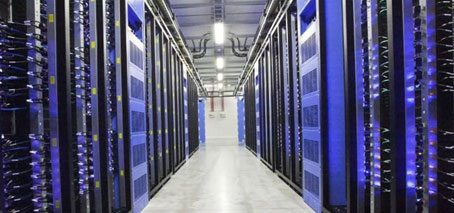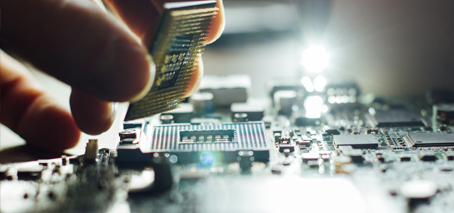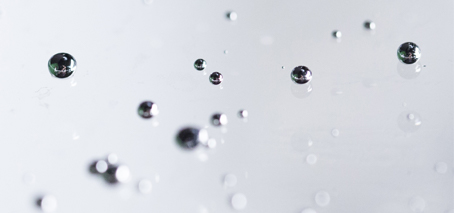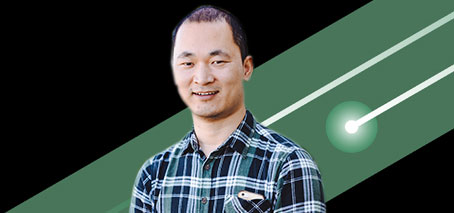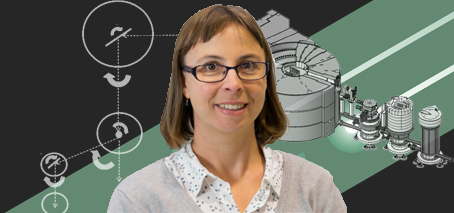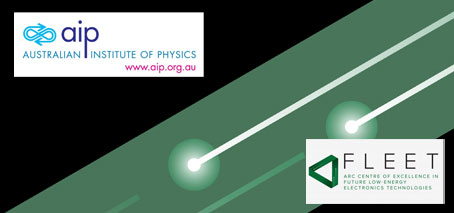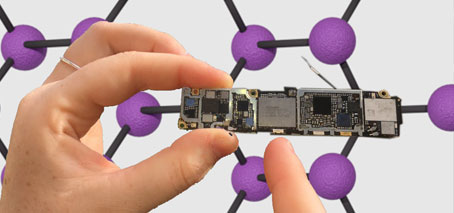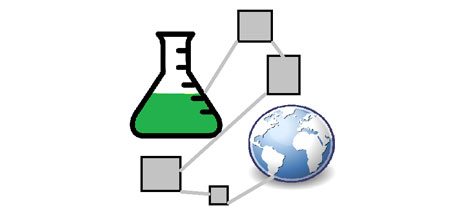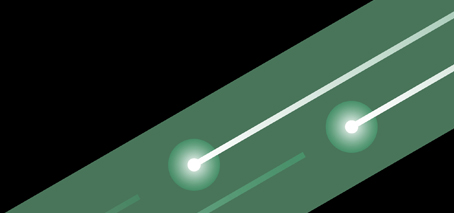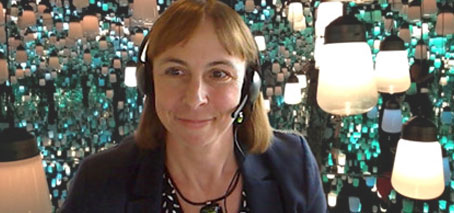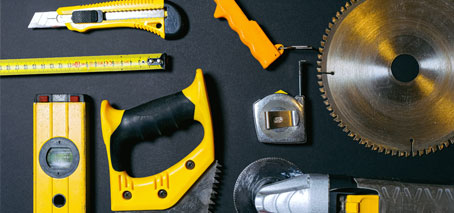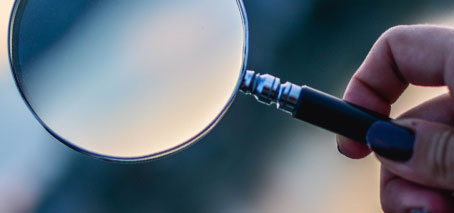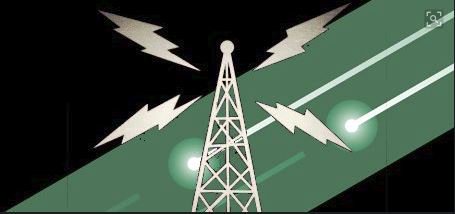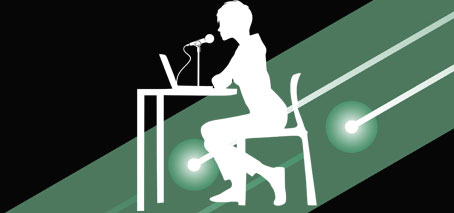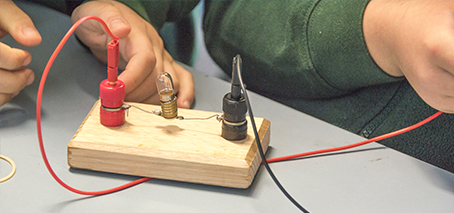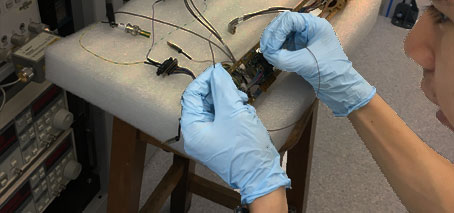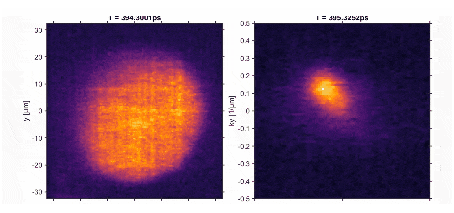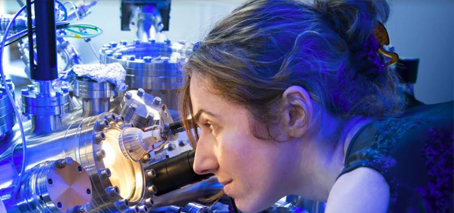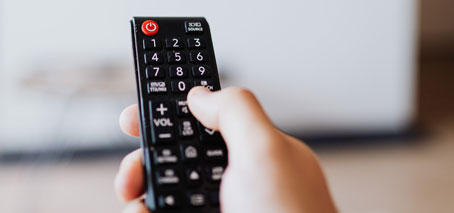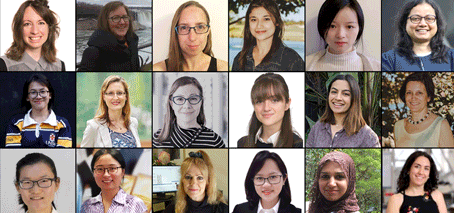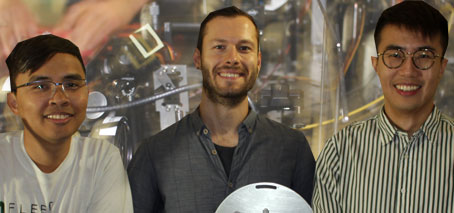FLEET is building links with partners interested in novel electronic devices and systems working towards the overarching goal of creating pathways to translations of research outcomes. Progress towards this important goal in 2020 included: Adding topological transistors to the Institute of Electrical and Electronics Engineers (IEEE) International Roadmap for Devices and Systems Lodging two provisional patents: topological switching (Fuhrer Monash and …
Topological-switching patents demonstrate FLEET’s dominance in field
Two patent applications, one filed in 2020, reinforce FLEET’s position as a world leader in topological transistors. The patents cover work in the ‘switching’ of topological material, to facilitate creation of a functioning topological transistor – a proposed new generation of ultra-low energy electronic devices. Their world-first success was the switching of a material via application of an electric-field between …
Liquid metals spin-off launched
The Liquid-metals spin-off company Liquid Metal Plus (LM+) initiated in 2020 with FLEET investigators Kourosh Kalantar-Zadeh (UNSW) and Dr Torben Daeneke (RMIT), together with Dorna Esrafilzadeh (UNSW), was launched in April 2021. Pushing print on flexible touchscreens Climate rewind: turning CO2 back into coal The company has two areas of focus, with the unifying theme being application of liquid-metal technologies …
Explainer: Linkage funding for topological-thermoelectricity
A team led by FLEET CI Prof Xiaolin Wang (University of Wollongong) has won a linkage project for topological materials based thermoelectricity. Thermoelectricity can directly convert heat to electrical energy or vice-versa. It plays an important role in renewable and sustainable energy by harvesting waste heat, which is widely available in human body, computer chips, sunlight and steel industry. Thermoelectric …
Thermoelectric devices convert waste heat from industry into viable new energy source
New research supports development of thermoelectric devices to convert waste heat from industry into a viable new energy source Australian industries could benefit from being able to harness the heat by-products from operations Development of advanced materials can sustainably convert waste heat into useful forms of energy to benefit Australia. The work will be undertaken as part of an Australian …
Building future science leaders in 2020
FLEET ensures that our young researchers are prepared for future success – wherever their career takes them. The Centre currently supports 64 higher degree by research (HDR) students and 45 postdoctoral researchers with another 21 research affiliates working on FLEET projects and invited to Centre training, workshops and events. FLEET connects its researchers with internal and international networks, for example, …
Monthly talks bring Australian research to the physics community
A series of talks spotlights leading Australian physics research for the physics community. Co-organised by FLEET and the Australian Institute of Physics, the series throws the spotlight on a different Australian Research Council Centre of Excellence each month, with AIP members and others in the physics community dialing in over zoom to hear about leading Australian research. To date, over …
Topological materials beat Boltzmann’s tyranny: Surpassing lower limit on computing energy consumption
Topological insulators can reduce transistor switching energy by a factor of four Defeating Boltzman’s tyranny, which puts a lower limit on operating voltage New FLEET research confirms the potential for topological materials to substantially reduce the energy consumed by computing. The collaboration of FLEET researchers from University of Wollongong, Monash University and UNSW have shown in a theoretical study that …
Skilling up our people in 2020: research impact and industry engagement
—Who would be interested in my research? Who would benefit from it the most? —How can I pursue high-impact research? —How does research translation work? —If I’ve developed some cool intellectual property, where would I start with industry engagement? —How do I effectively ‘sell’ the value of my research in an award application/grant/job interview? While researchers are typically familiar with …
FLEET heading to Melbourne Knowledge Week
Melbourne Knowledge Week (26 April-2 May 2021) will be an opportunity for FLEET to engage with the public about the exciting future of computing, and the vital role of energy-efficient electronics in that future. FLEET’s sustainable computing booth will run for the full week at the festival hub, with hands-on science demonstrations linked to materials used in FLEET research, such …
Online format is easy, enjoyable engaging: SMP 2021
This years’ Science Meets Parliament 2021 transitioned to a mostly virtual event and I must admit, I enjoyed this format thoroughly. The format involved shorter sessions scheduled throughout March, which made it much easier to attend amongst other work and family commitments. This extended program was in conjunction with 2 full days of focused sessions with seminars on topics such …
Tools of the Trade: Zengji Yue explains ion intercalation for new Nature series
Inserting ions into, or between, atomically-thin materials can be used to alter their properties in a finely-controlled fashion. For example, graphene’s properties can be fine-tuned by injection of another material (a process known as ‘intercalation’) either underneath the graphene, or between two graphene sheets. (See article.) “Intercalating ions into layered materials increases the spacing and decreases the coupling between the …
A new, positive approach could be the key to next-generation, transparent electronics
A new study, out this week, could pave the way to revolutionary, transparent electronics. Such see-through devices could potentially be integrated in glass, in flexible displays and in smart contact lenses, bringing to life futuristic devices that seem like the product of science fiction. For several decades, researchers have sought a new class of electronics based on semiconducting oxides, whose …
Qubits comprised of holes could be the trick to build faster, larger quantum computers
New study indicates holes the solution to operational speed/coherence trade-off, potential scaling up of qubits to a mini-quantum computer. Quantum computers are predicted to be much more powerful and functional than today’s ‘classical’ computers. One way to make a quantum bit is to use the ‘spin’ of an electron, which can point either up or down. To make quantum computers …
FLEET PhDs on the Melbourne airways
Three FLEET PhD students this month featured on popular radio science show Einstein a go-go, on the show’s regular “20 PhDs in 20 minutes” segment. In this format, student and host each get a minute, covering the student’s entire project in just two minutes combined. (Perfect practice for the famous ‘elevator pitch’.) The three FLEET presenters were Alex Nguyen (Monash), Matt …
Smartphones vs fridges #fakenews
Or, why we dropped a super-persuasive fact. It’s a much-quoted ‘fact’ that your smartphone uses more electricity than your fridge. And it’s very persuasive, particularly if you work (as we do) in the field of low-energy electronics. The entire field is predicated on the fact that computing/electronics use an unsustainable amount of electricity. And because most people don’t think of …
2020: a challenging year for outreach!
In 2019, after a remarkable achievement in reaching over 10,000 students, FLEET voluntarily raised its outreach target from 200 students to 2000 students, 50 teachers to 75 teachers and 2000 public members to 5000 public members. And then Covid happened … However, despite the unique challenges that Covid imposed on face-to-face outreach, cancelling public events and banning in-class or in-lab …
FLEET represents at APS March
FLEET is dialling in to the online APS March Meeting from afar this year! Here’s a list of talks given by FLEET members and affiliates throughout the week to check out (if you have registered for the conference, catch-up links are provided on each page). Monday 15 March Ali Yazdani (Princeton University, FLEET Advisory Committee) Correlation and topology in magic …
FLEET’s 2020 Annual Report.
We’re pleased to present hot-off-the-press FLEET ‘s 2020 Annual Report, detailing an extraordinary level of scientific output, as well as FLEET’s response to COVID-19. It was quite a year! The new online format is much easier to navigate and share with others (just share the relevant page’s URL), as well as being a bit gentler on the planet. Thanks everyone …
Engaging senior school students at JMSS in 2020
In 2020, FLEET continued the Year 10 ‘Future electronics’ course launched the year before in partnership with John Monash Science School (JMSS), Victoria. As well as covering the history of semiconductors, Moore’s Law and computing, the course introduces quantum physics at an intuitive level (with minimal maths) and expands on this fundamental understanding to explain complex, useful quantum states such …
‘Target identified’: teaching a machine how to identify imperfections in 2D materials
Applying machine learning to automated characterisation of atomically-thin materials Just as James Cameron’s Terminator-800 was able to discriminate between “clothes, boots, and a motorcycle”, machine-learning could identify different areas of interest on 2D materials. The simple, automated optical identification of fundamentally different physical areas on these materials (eg, areas displaying doping, strain, and electronic disorder) could significantly accelerate the science …
Working with other science organisations in 2020
Although 2020 posed unique challenges to in-person collaborations, FLEET proactively sought out opportunities to partner with other science organisations to further the reach of Centre-relevant science, advance equity issues and develop future leaders, for example: Working with the Australian Institute of Physics (AIP) to instigate and co-host a monthly series of talks spotlighting physics research at six different Australian Research …
Summer students introduce undergrads to quantum device study at UNSW
Alex Hamilton’s QED group at UNSW recently hosted four summer students, working alongside FLEET’s researchers on nanofabrication and characterisation projects connected to the QED group’s key research mission. Over the course of their six-week placement, students pursued individual projects within the groups research project, developing individual skills in device fabrication and experimental process. The UNSW Physics Quantum Electronic Devices group …
Sloshing quantum fluids of light and matter to probe superfluidity
The ‘sloshing’ of a quantum fluid comprised of light and matter reveals superfluid properties. An Australian-led team of physicists have successfully created sloshing quantum liquids in a ‘bucket’ formed by containment lasers. “These quantum fluids are expected to be as wavy as the oceans, but catching clear pictures of the waves is an experimental challenge,” says lead author Dr Eliezer …
Spotlighting ARC physics in 2020
FLEET pushed out the boundary of online talks, collaborating with the Australian Institute of Physics (AIP) to co-host a series of monthly public seminars highlighting Australian physics research. The new series throws the spotlight on a different Australian Research Council Centre of Excellence each month, with AIP members and others in the physics community joining over Zoom to hear about …
Harnessing socially-distant molecular interactions for future computing
Could long-distance interactions between individual molecules forge a new way to compute? Interactions between individual molecules on a metal surface extend for surprisingly large distances – up to several nanometers. A new study, just published, of the changing shape of electronic states induced by these interactions, has potential future application in the use of molecules as individually addressable units. For …
Remote outreach that’s also hands-on
FLEET scientists seeking new, creative ways to do science outreach found a silver lining in Covid-19 restrictions: they actually improved the experience for students. A team of FLEET-UNSW PhDs and early-career researchers (ECRs) was able to bridge 2020’s Covid restrictions to safely engage a classroom of students with virtual, but hands-on science. Led by PhD student Vivasha Govinden and node …
‘Pivoting’ to virtual: online lab tours in 2020
In the absence of in-house lab tours to introduce school students to working labs and researchers, in 2020 FLEET developed and distributed a series of ‘virtual lab tours’, of varying levels of interactivity: Show-and-tell lab tour via webcam for John Monash Science School (JMSS) students at Clayton of FLEET laboratories at UNSW in Sydney (materials science), and Swinburne University in …
Celebrating women in STEM
Why would we need a special day to celebrate women in science? February 11th marks the International Day of Women and Girls in Science, promoted by the United Nations. According to the UN, less than 30% of the researchers worldwide are women. This means that there’s twice as many men as there are women! In fields like Mathematics, Physics and …
Scientists create armour for fragile quantum technology
An international team of scientists has invented the equivalent of body armour for extremely fragile quantum systems, which will make them robust enough to be used as the basis for a new generation of low-energy electronics. The scientists applied the armour by gently squashing droplets of liquid metal gallium onto the materials, coating them with gallium oxide. Protection is crucial …

